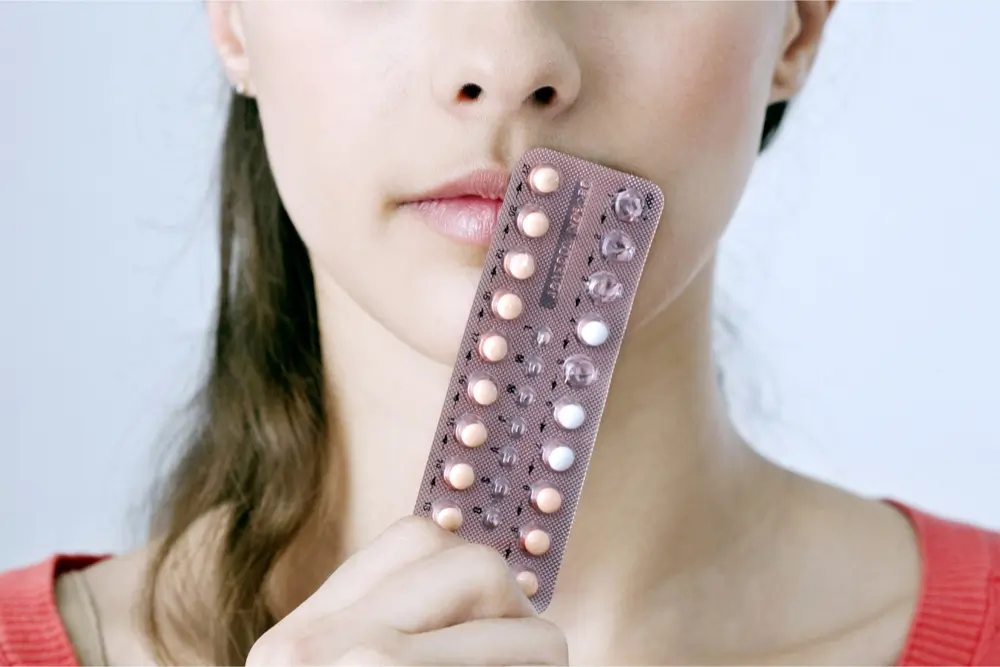What are the side effects of the pill?
The combined contraceptive pill (commonly known as “the pill”) has been around since the 1960s and is used by women all over the world as an effective, convenient form of birth control. It contains two hormones- oestrogen and progesterone, and it works by preventing ovulation. Most women get no side effects while taking the pill. However, some may can experience side effects or complications, ranging from minor to more serious health issues.
Minor side effects of the pill
The pill can cause side effects, but serious complications are uncommon- for most women the benefits of taking the pill far outweigh the risks.
- Nausea- in the first week of starting the pill, some women experience nausea- however, this tends to settle within a few days, if they continue to take it.
- Headaches
- Breast tenderness
- Bloating
- Skin changes- including acne and increased pigmentation on the face (also known as chloasma or melasma)
- Changes in mood
- Changes in sex drive
- Increased blood pressure (hypertension)- it’s recommended to have a blood pressure check within the first few months of starting the pill, and at least once a year after that.
Changes in bleeding pattern while taking the pill
Most women get a withdrawal bleed like a period when they are on their week of sugar pills (unless they skip them). In many cases this will be lighter than their usual period. However, some women may get little or no bleeding in this week. Others may experience spotting or breakthrough bleeding throughout the month, while taking active pills- this may settle if the oestrogen dose in the pill is increased. It’s always recommended that you see a doctor if you get any irregular or unexpected bleeding as there can be other gynaecological or infectious causes.
Does the pill cause weight gain?
The research says probably not. Whilst many women worry about gaining weight on the pill, so far scientific studies have shown no clear link. The concern may have arisen due to several factors. It’s possible that some women do experience side effects such as bloating or fluid retention while on the pill, which might be perceived as weight gain. Women in long-term relationships may be more likely to gain weight (and are also more likely to be on the pill). And it may be that the first contraceptive pills on the market back in the 1960s had higher doses of hormones, which possibly did have an impact on weight.
In a nutshell, the pill probably has no effect on weight, so it’s certainly not a reason to avoid it.
Clotting risk and the pill
- Women who take the pill have a slightly higher risk of developing a blood clot
- Clotting risk is further increased by smoking, obesity, long haul flights, major surgery, immobility and certain medical conditions such as lupus and cancer- an alternative form of birth control should be discussed with your doctor.
- Depending on where a clot forms in the body, it can lead to a stroke, heart attack, DVT (deep vein thrombosis) or pulmonary embolism (a clot in the lung). These conditions can be serious, and potentially life-threatening.
- Symptoms of a blood clot may include:
- A painful/swollen leg (or arm)
- Sharp chest pain which is worse on taking a deep breath
- Unexplained shortness of breath or rapid heart rate
- Coughing up blood
- Numbness or weakness of an arm or leg
- Sudden problems of speech or vision
- It’s also important to be aware that some pills have a higher clotting risk than others. Pills containing certain progesterones have a higher risk. If possible, it’s better to take a pill with lower risk ingredients. Ask your GP or pharmacist if you’re not sure.
The Pill and Cancer
Taking the pill appears to increase the risk of some types of cancer but may protect against others- overall, the risk of cancer is reduced in women who take the pill. The risk of breast cancer appears to increase slightly, so regular self-checking of the breasts is advised, and if any changes are noticed, it’s important to see a doctor. There may also be a slightly increased risk of other cancers, including cervical cancer. It’s therefore important to have regular cervical screening. Rates of cancer of the ovary, uterus and bowel appear to be lower in women who take the pill.
If you have concerns or questions about the pill, or about side effects of the pill, speak to your GP or pharmacist.

5 myths about the pill
5 myths about the pill Does the pill make you gain weight? A lot of women ask this question. So far, research shows no major effect of the contraceptive pill [...]
What are the side effects of the pill?
What are the side effects of the pill? The combined contraceptive pill (commonly known as “the pill”) has been around since the 1960s and is used by women all over the world [...]
Can you get pregnant on the pill?
Can you get pregnant on the pill? The simple answer is yes. No form of contraception (birth control) is 100% effective. However, if taken perfectly, the contraceptive pill (also known as the combined [...]







